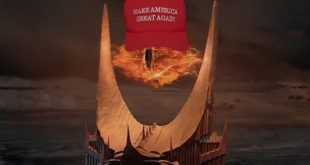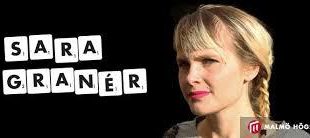The need for a new economics curriculum without the present suicidal formalism When the global economy crashed in 2008, the list of culprits was long, including dozy regulators, greedy bankers and feckless subprime borrowers. Now the dismal science itself is in the dock, with much soul-searching over why economists failed to predict the financial crisis. One of the outcomes of this debate is that economics students are demanding the reform of a curriculum...
Read More »Hemstadens poet har lämnat oss
Hemstadens poet har lämnat oss En man har gått ur tiden. Och en stad har mist sin store poet. Jacques Werup (1945-2016). Det var en match mellan MFF och HIF, arvfienden från Helsingborg, årets match. Jag var knappt tio år och MFF kunde för mig ‘aldrig’ förlora. Men HIF ledde med 2-0 en halvtimme in i andra halvlek, ‘Kajan’ stod i mål för ‘di blåe’, Tore Svensson hade blivit skadad och på den tiden fanns inga nya spelare att ta in. Kalle Svensson i HIF-målet...
Read More »Mathematics and statistics do not solve our disagreements
Mathematics and statistics do not solve our disagreements Statistical Science is not really very helpful for understanding or forecasting complex evolving self-healing organic ambiguous social systems – economies, in other words. A statistician may have done the programming, but when you press a button on a computer keyboard and ask the computer to find some good patterns, better get clear a sad fact: computers do not think. They do exactly what the...
Read More »The significance of insignificance (wonkish)
The significance of insignificance (wonkish) Skewness, outliers, multiple hypothesis testing, and reliance on asymptotics often — as is well-known among most statisticians — give rise to spurious findings. But the problem may actually be even worse than we have thought. In an interesting new paper, Alwyn Young, after having looked at over 2000 regressions reported in American Economic Association journals, summarizes his findings: Armed with an idea and...
Read More »RCTs — the illusion of assumption-free learning
RCTs — the illusion of assumption-free learning Blinding is rarely possible in economics or social science trials, and this is one of the major differences from most (although not all) RCTs in medicine, where blinding is standard, both for those receiving the treatment and those administering it … Subjects in social RCTs usually know whether they are receiving the treatment or not and so can react to their assignment in ways that can affect the outcome...
Read More »A legend among legends has passed away
A legend among legends has passed away [embedded content] [embedded content] [embedded content] Leonard Cohen (1934-2016)
Read More »Why Trump won the election
Why Trump won the election Basically because these two economic theory monstrosities simply do not work!
Read More »The limitations of RCTs (wonkish)
The limitations of RCTs (wonkish) Yours truly is extremely fond of science philosophers and economists like Nancy Cartwright and Angus Deaton. With razor-sharp intellects they immediately go for the essentials. They have no time for bullshit. And neither should we: Randomised controlled trials (RCTs) have been sporadically used in economic research since the negative income tax experiments between 1968 and 1980 … and have been regularly used since then to...
Read More »Welcome to Mordor
That a country that has given us presidents like George Washington, Thomas Jefferson, Abraham Lincoln, and Franklin D. Roosevelt, is going to be run by a witless clown like Donald Trump is an absolute disgrace. Tuesday, November 8th, 2016 — a date which will live in infamy.
Read More »Hur stora klyftor tål Sverige?
Hur stora klyftor tål Sverige? Malmö högskola arrangerar Bildningsbaren #3 – ett samtal om ekonomi och ojämlikhet Det talas allt mer om växande ekonomiska klyftor. De i toppen drar iväg från de i botten. Från att ha varit världshistoriens jämlikaste land har Sverige snabbt närmat sig genomsnittet inom OECD – ett genomsnitt där klyftorna också har ökat. I Bildningsbaren #3 pratar vi om de ekonomiska klyftorna och ojämlikhet i dagens Sverige. Sara Granér,...
Read More » Lars P. Syll
Lars P. Syll









